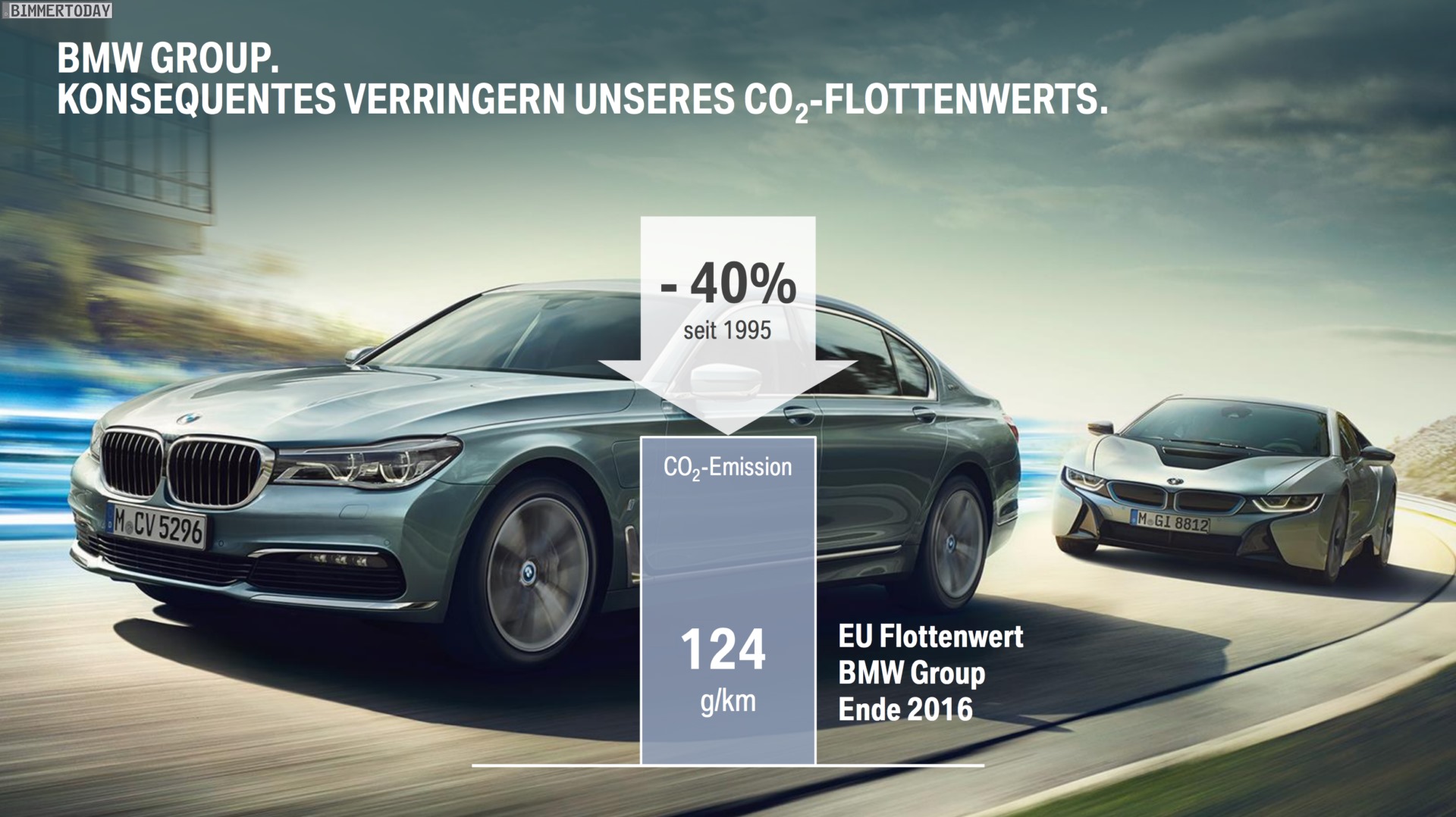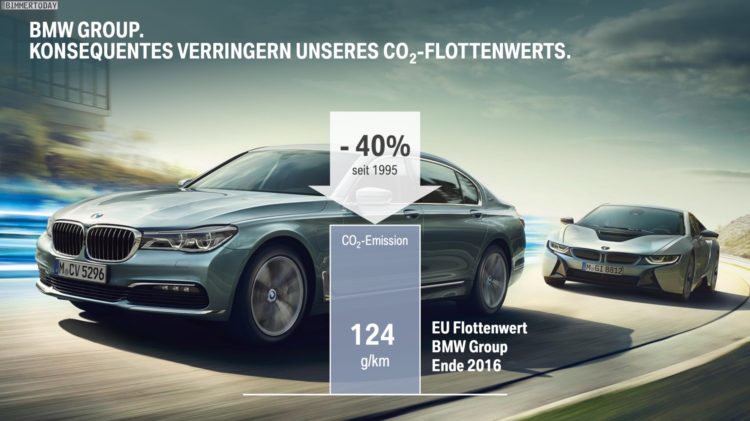With average CO2 emissions of 124 grams per kilometer in the vehicle mix of the fleet delivered in Europe, the BMW Group was once again able to reduce the emissions of their fleet last year. In 2012, the CO2 emissions were nearly 20 grams above the current value, but the development is even more impressive: since 1995, the CO2 emissions of the BMW fleet in Europe have been reduced by more than 40 percent.
The current fleet emissions correspond to an average of 4.6 liters of diesel or 5.6 liters of gasoline per 100 kilometers. For the next few years, the BMW Group expects a further drop in the average consumption values, which means that CO2 emissions will continue to fall. This is also necessary. After all, the EU has set a target of 100 grams for the BMW Group by the year 2021. In order to achieve this goal, there is no way to bypass further electrification of the vehicle fleet.
In the years 2014, 2015 and 2016 the CO2 emissions of the European BMW fleet was reduced by three grams per kilometer. If the Munich drivers were to continue at the same pace, the emissions in 2021 would still be 109 grams per kilometer, so it is obvious that BMW EfficientDynamics, BMW i and BMW iPerformance should not let up in the coming years.
Only with the further expansion of the offer of plug-in hybrids and electric cars as well, the further reduction of all consumption values of conventionally driven automobiles can be circumvented the EU-punished penalties. Vehicles such as the MINI E and the purely electric BMW X3, together with the ever-expanding fleet of plug-in hybrids, will ensure that models with electrified drive are being considered by even more customers.
The BMW Group’s sustained commitment to the BMW Group’s long-standing commitment to sustainability is also reflected in the consistent reduction in emissions in vehicle construction. CO2 emissions per vehicle produced have been reduced by 48.6 percent since 2006! Good news for the environment is also the 35.4 percent lower energy consumption, a remarkable 31 percent less water consumption and even 81.5 percent less waste generated for disposal. And so, of course, production also makes its contribution to a cleaner car.






































































